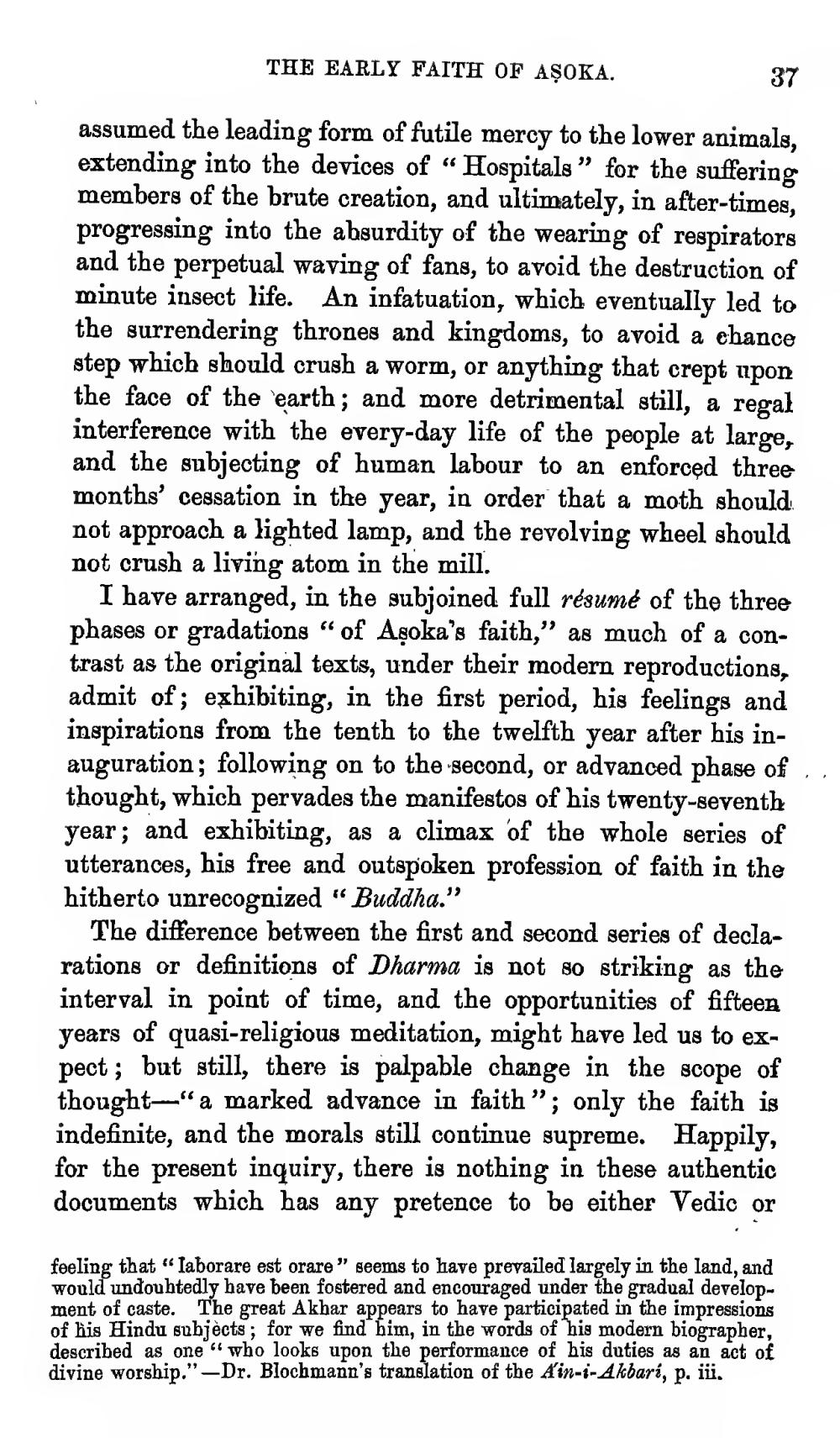________________
THE EARLY FAITH OF ASOKA.
assumed the leading form of futile mercy to the lower animals, extending into the devices of "Hospitals" for the suffering members of the brute creation, and ultimately, in after-times, progressing into the absurdity of the wearing of respirators and the perpetual waving of fans, to avoid the destruction of minute insect life. An infatuation, which eventually led to the surrendering thrones and kingdoms, to avoid a chance step which should crush a worm, or anything that crept upon the face of the earth; and more detrimental still, a regal interference with the every-day life of the people at large, and the subjecting of human labour to an enforced three months' cessation in the year, in order that a moth should not approach a lighted lamp, and the revolving wheel should not crush a living atom in the mill.
I have arranged, in the subjoined full résumé of the three phases or gradations "of Asoka's faith," as much of a contrast as the original texts, under their modern reproductions, admit of; exhibiting, in the first period, his feelings and inspirations from the tenth to the twelfth year after his inauguration; following on to the second, or advanced phase of thought, which pervades the manifestos of his twenty-seventh year; and exhibiting, as a climax of the whole series of utterances, his free and outspoken profession of faith in the hitherto unrecognized "Buddha."
The difference between the first and second series of declarations or definitions of Dharma is not so striking as the interval in point of time, and the opportunities of fifteen years of quasi-religious meditation, might have led us to expect; but still, there is palpable change in the scope of thought—“a marked advance in faith"; only the faith is indefinite, and the morals still continue supreme. Happily, for the present inquiry, there is nothing in these authentic documents which has any pretence to be either Vedic or
37
feeling that "laborare est orare" seems to have prevailed largely in the land, and would undoubtedly have been fostered and encouraged under the gradual development of caste. The great Akhar appears to have participated in the impressions of his Hindu subjects; for we find him, in the words of his modern biographer, described as one "who looks upon the performance of his duties as an act of divine worship."-Dr. Blochmann's translation of the Ain-i-Akbari, p. iii.




